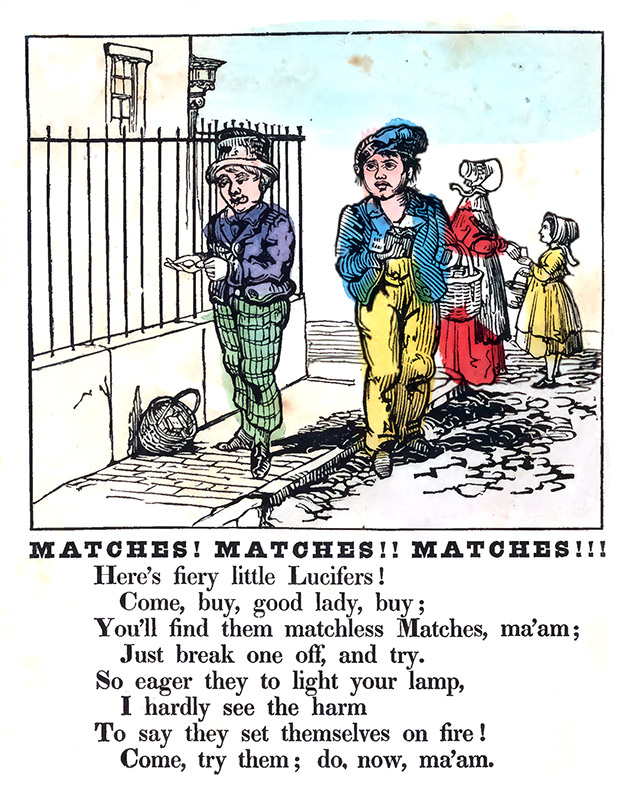Street cries of the world
Street cries were once a popular subject of songs and literature in Britain, continental Europe and elsewhere. Each month from 2018 onwards I'll be scanning and transcribing publications to build this collection.
+ British Isles pre-19th century
− USA, Jamaica and Australia
The Cries of Philadelphia 1810
The New-York Cries, in Rhyme c. 1825
The New-York Cries in Rhyme 1836
The Boston Cries, and the Story of the Little Match-boy 1844
City Cries: Or, a Peep at Scenes in Town 1850
The Street-Cries of New York 1870
Excerpts from the Jamaica Gleaner group of newspapers 1896–1990
Street Cries of an Old Southern City 1910
Street Cries of Philadelphia 1920
Hawkers & Walkers of Early America 1927
Kingston Street Cries and Something About Their Criers 1927
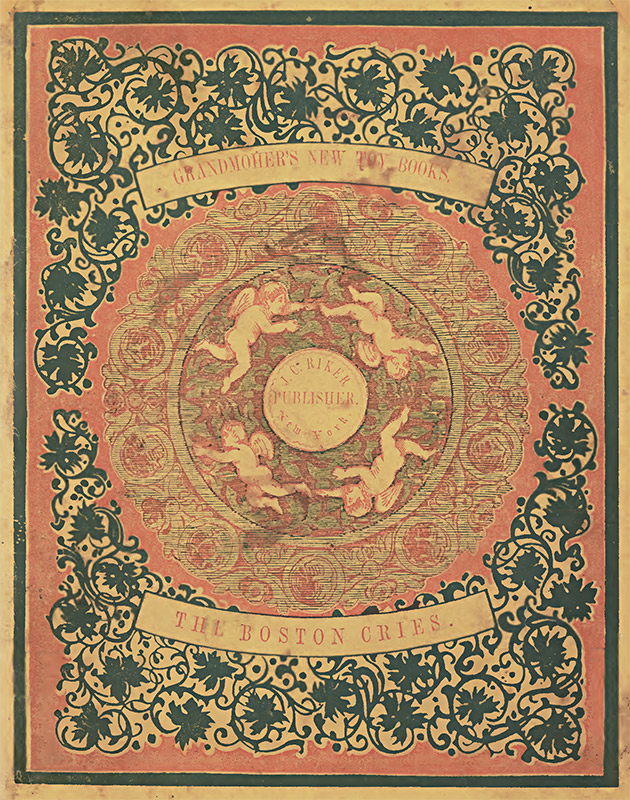

THE LITTLE MATCH-BOY.
ONCE there was a little boy, and his name was Patrick Conner. He was all alone in this wide world, for his father and mother were both dead, and he had no brother nor sister; and he was a stranger, too, in this country, for he was a little Irish boy. His parents had been very poor, and when they were both dead, he wandered about the streets begging for something to eat, and slept in any barn, or wood-house, or shed, that he happened to be near at evening.
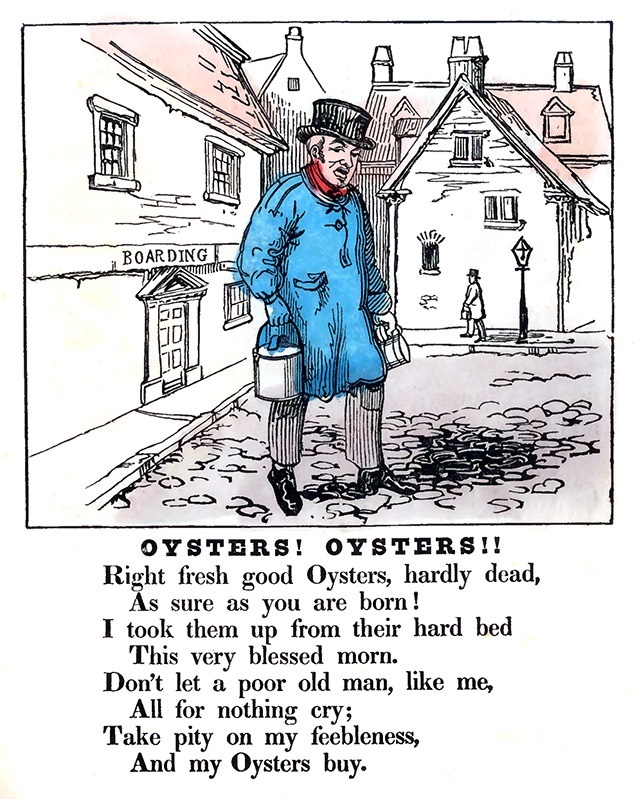
Begging is a lazy way of getting one’s bread, and he might have worked for his living; he was strong enough; but he never thought of it; and he had no one to advise him; so he lived idly in the streets, merely asking for a piece of bread when he was hungry, and lying down at night in the most comfortable place that chanced to be at hand. He had lived in this way about a week, and now his clothes, where were none of the best when he was first left to himself, began to hang about him in streamers.
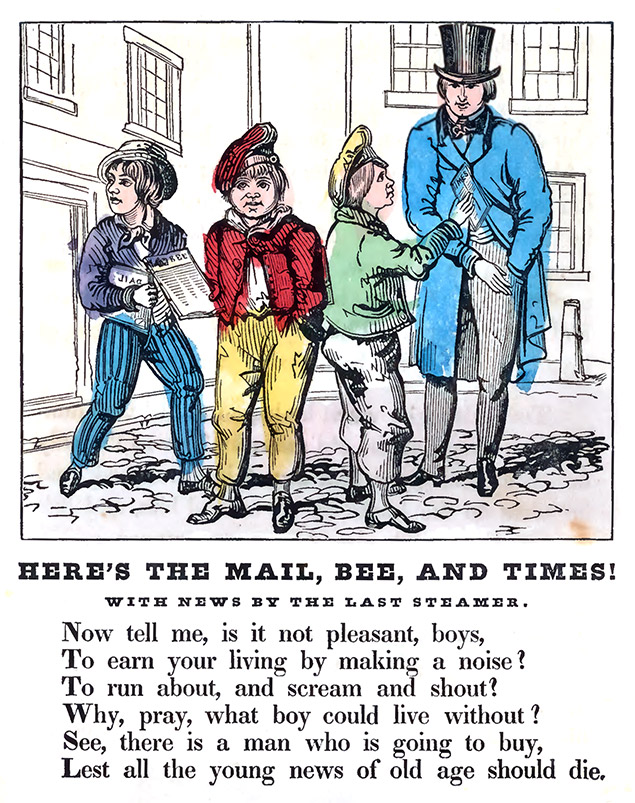
One days, he was lying at his length in the sun, on the door-step of a large old brick house in Washington Street, some way out on Boston Neck. He felt very sorrowful, though he did not know just why. I suppose it was because he was lonely and idle; the poor little fellow had no one to speak to, and nothing to do. As he lay there, a shower of dust and little sticks fell down upon his face; he looked up with one eye, for the other was full of dust, and saw an old man, with gray hair falling about his face and a round black cap on his head, reaching out from a window in the upper story, directly above the door-step. He had a pan in his hand, from which he had just thrown out the dust. Little Pat was crying with the pain of his eye, and at the same time picking out the little chips from between his neck and his shirt collar. “Ah! bad, bad!” cried the old man; “but the wind did it, not I; the wind blew the dust back;” and he drew his head in. But presently he appeared again at the window, and threw Pat down an apple; and while a bit of the apple remained, Pat was happy. This apple and one piece of bread were all he had tasted for the day.
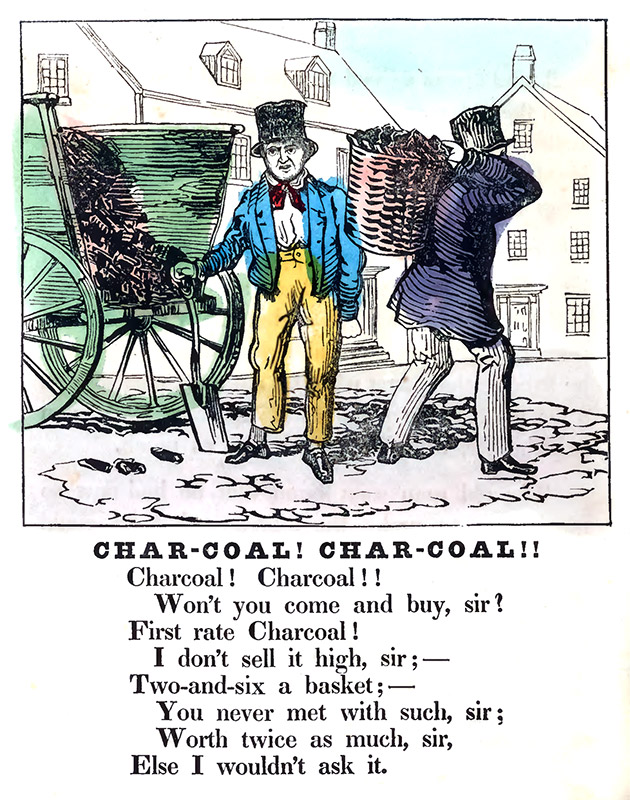
Towards night, when he began to feel very hungry, he thought of the old man; for he was the only one who had given him any thing unasked, and he went to the house to try to find him, and ask him if he would give him some supper and a place to sleep. He inquired at the door for an old man with a black cap, and was shown the way up to the old man’s garret. He found the old man there alone, splitting small pieces of wood for matches. Pat went close up to him; but he did not know very well how to say he wished, and, while he stood thinking what to say, the old man asked him what he wanted.
“I want some supper,” said Patrick.
“You have come to a poor place to find one,” said the old man. “I have but one small load, and no money to buy more.”
“Haven’t you some apples?” asked Patrick.
“I threw my last apple away, this very afternoon. I threw it away upon a little lazy boy; and if I only had him here now, I would &emdash;”
Pat thought the old man was going to say he would beat him; and he had half a mind to run away; but the old man’s voice sounded so kindly, that he staid and told him that he himself was the boy to whom he had given the apple; but he added, “I could not help being lazy.”
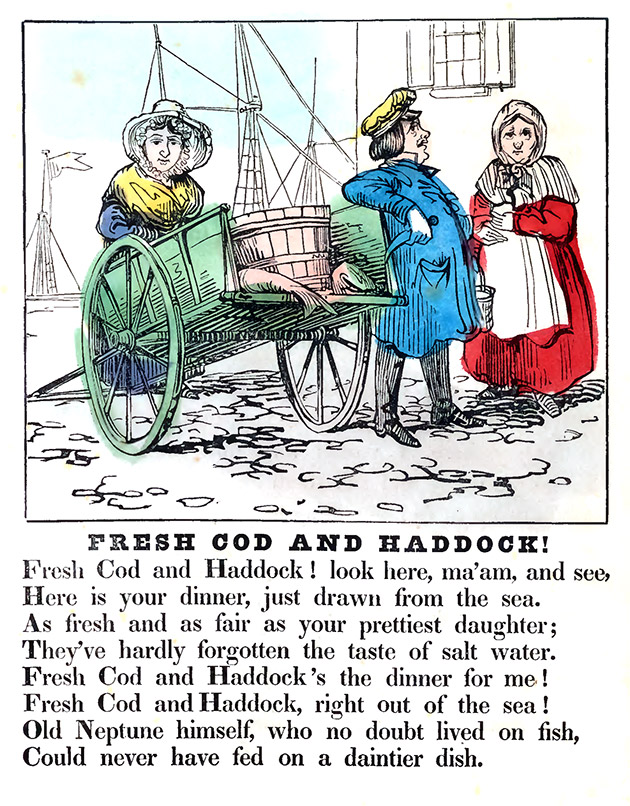
“Ah!” said the old man, “is this the little lazy vagabond who was stretched across the steps? My eyes are old. And do you expect an old man, who has hardly the strength to earn a bit of bread to put into his own mouth, to support you in your idleness?”
Pat was now frightened, though the old man did not speak in a cross tone, and turned to walk out; but the old man called him back, and asked why he could not help being idle.
“Because I have nothing to do,” said Patrick.
“I will give you something to do,” said the old man. “I was just going to say, that, if I had a little boy here, I would hire him to carry my matches about and sell them for me; for my old limbs begin to feel unwilling to do that service for me any longer; they tell me they are too old and stiff. Now, if I had a pair of nimble little boy’s legs, like yours, to run about with my matches, while I sit here making more, I could afford to feed my old body better, and keep it in better repair.”
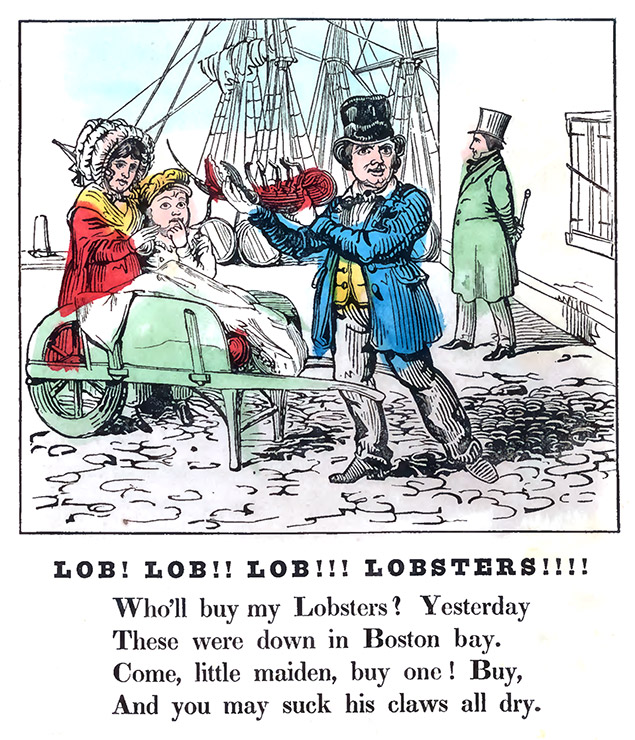
Patrick said he should like the business right well, and it was agreed that he should stay the night with the old man, and the next morning set forth with a basket of matches. The old man shared his loaf with Patrick, and gave him a mat to sleep on.
The next day, the happy little Pat went out into the country where there are but few shops, with his matches, and he sold so many that the old man found it very profitable to employ him; and he lived in the garret with the old man, who seemed after a while the same as if he were Pat’s own grandfather, and Pat loved him as much.
The old man soon found that he had now so much time to make the matches, that he could afford to hire another boy; and so the two boys used to go out together, like brothers, and Pat felt as if he had a grandfather and a brother. There is a picture in this book of these very boys. Pat is the one with his basket on his arm.
